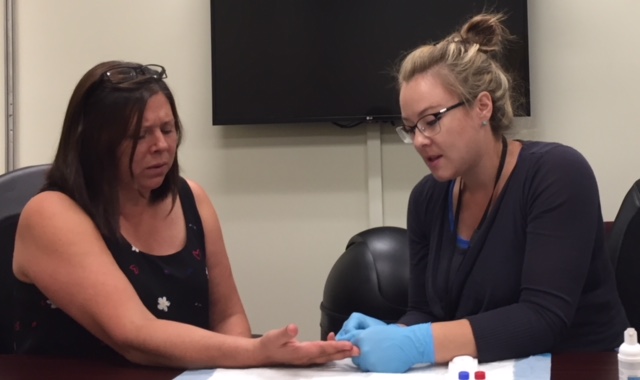A new open educational resource tool is being offered to professionals on northern and Indigenous health and healthcare.
The resource offers 38 chapters from authors in the circumpolar regions covering aspects such as; community health in northern and Indigenous communities, social determinants, innovations in northern health care and practicing in remote and Indigenous communities.
Dr. Heather Exner-Pirot with the University of Saskatchewan co-edited the material. She says health in the north is impacted by a lack of specialized services. “I think you can get very good primary health care in rural and remote areas. It’s when you need access to more specialized care that it becomes more difficult. So, right now often the model we use right now is to ship people out to see specialists. One of the chapters in our open text really talks about new innovations that can kind of reduce the travel,” Exner-Pirot said.
Many rural and remote health care facilities often function with a single nurse or small support staff, putting more pressure on these employees when busy. Exner-Pirot says many Nordic countries are attempting to increase recruitment and retention of nurses in Indigenous and remote communities by training locals, who would have more incentive to stay in their home communities.
“The gap that this text book is trying to fill is that we’re making a big effort in Canada and elsewhere is trying to train northerners and to educate northerners to be their own health care providers. And to not always draw on what’s a hospital or tertiary care experience to deliver health care,” Exner-Pirot explained.
(PHOTO: NITHA Executive Director Mary Carlson (left) is given a point-of-care HIV test by community outreach nurse Jesse Depell (right). Photo by Fraser Needham.)
